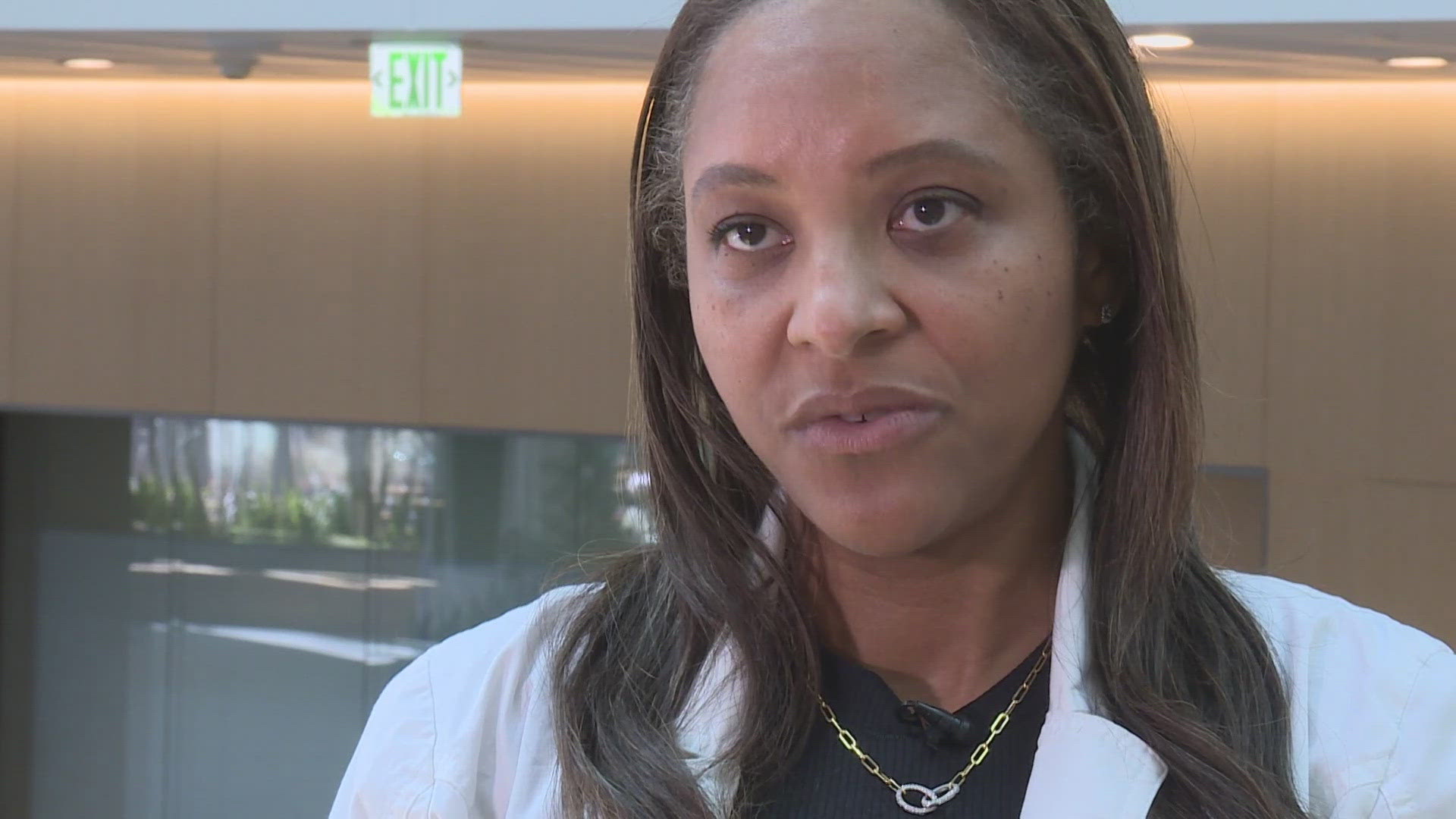AURORA, Colo. — More than 1 million Americans are blind, according to the Centers for Disease Control and Prevention, and millions more have vision loss.
Researchers at the University of Colorado Anschutz Medical Campus are hoping to restore vision to many through total eye transplantation, and a $46 million award from a U.S. Department of Health and Human Services program will help them to do that.
"Something great is going to come out of this – even if it's not what we expect," said Dr. Kia Washington, Professor of Surgery at CU Anschutz. "I mean, I've been studying this for over a decade, actually, and with the hopes of this becoming a clinical reality to help our patients that are suffering from blindness. And I do feel that with the resources and the award provided by the ARPA-H agency that it's now within reach."
Washington said their research will need to tackle restoring vision after an eye transplant by regrowing or regenerating the optic nerve. Part of that is finding a way to actually repair the optic nerve and reduce scarring during the surgery.
"And the other part is tapping into our innate kind of intrinsic ability to regrow the optic nerve. And so we're looking at ways to manipulate genes in order to do that," Washington said.
This kind of work is tricky, Washington said, in part because of how our ability to see is connected throughout our bodies.
"The eye is an extension of your brain and is essentially part of your brain, so we consider it to be part of the central nervous system," Washington said.


The work is far from easy, but can make a big difference for many.
"I actually get emails from patients all the time that are looking to get eye transplants or be part of a clinical trial for eye transplantation and some really touching stories, especially from some of the wounded service members that have had trauma to their eye and you know, want to see their children again. Really touching stories," Washington said. "I’m so happy that hopefully one day we will be able to help those patients.”
She said this is high-risk, high-reward research with CU Anschutz leading the charge. Washington has her sights set on tackling total eye transplantation in 10 years.
"We're shooting for the moon, shooting for the stars and we know something great is going to come out of it," Washington said.
CU Anschutz is leading the project, and the work will be done in collaboration with a number of other institutions around the country, including Johns Hopkins University, the University of Southern California and the National Eye Institute.

